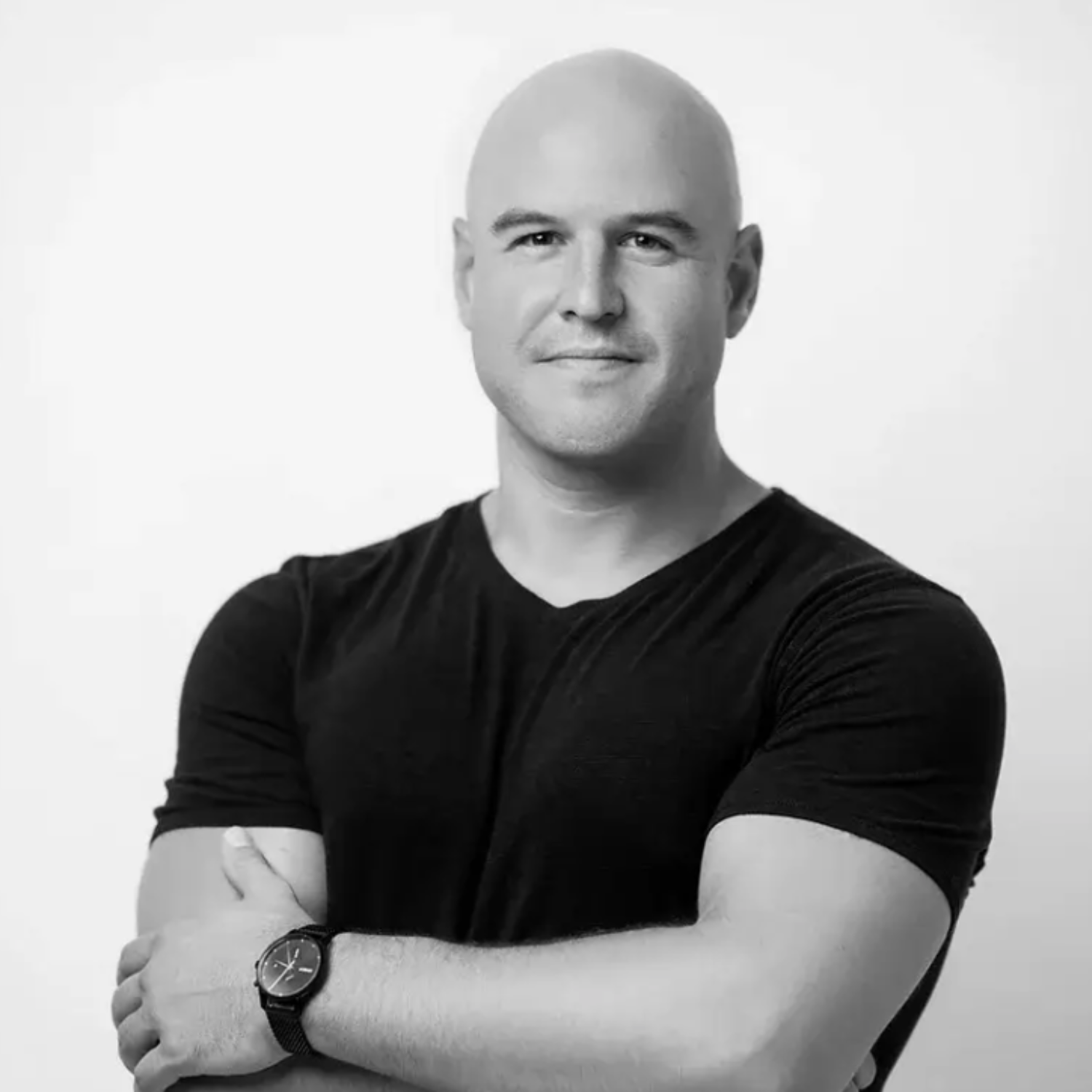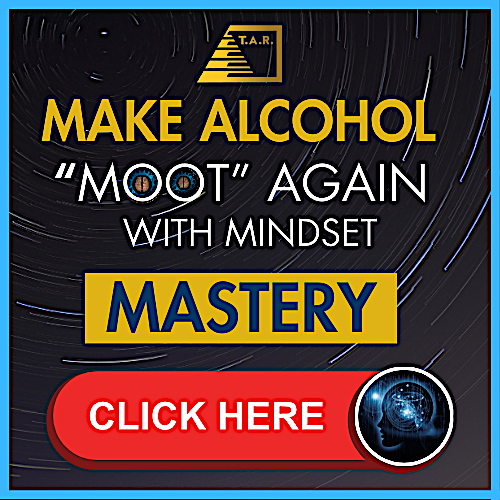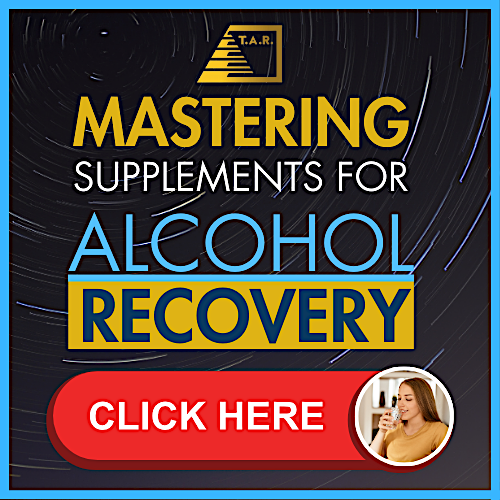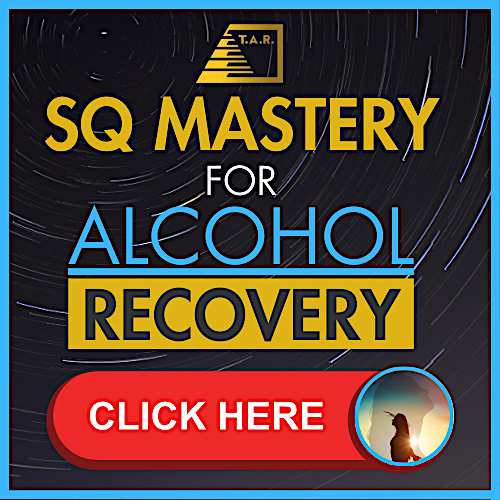When I quit drinking 5 years ago, one of my biggest anxieties was being “put on the spot” to explain my teetotaling at events.
I discovered long ago that this fear was unjustified. If you’re in early recovery or considering quitting drinking, I hope that my experience here helps you to own your freedom from alcohol and make it a point of pride.
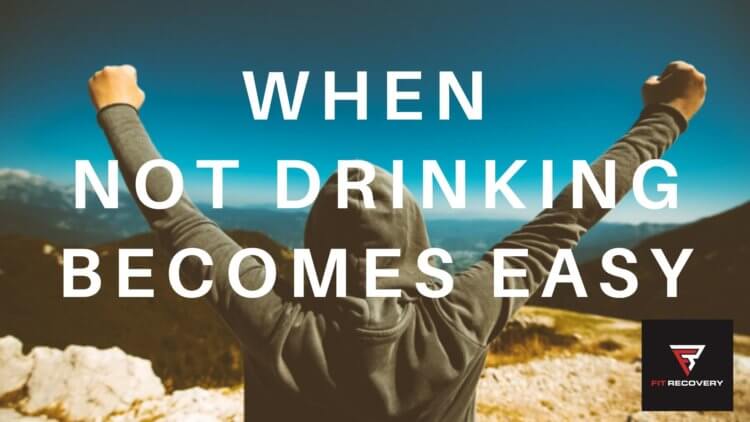
Thanks to the strategies that I’ve accumulated from countless books and mentors, and which I teach on this website and in my online course, I approached my college reunion last weekend with zero anxiety and lots of excitement.
What were the factors that allowed me to genuinely enjoy an event in which I was surrounded by a chaotic mix of good friends and old drinking buddies, many of whom I hadn’t seen in a decade or more, and most of whom were drinking like fish the whole time?
How I Approach Reunions During Recovery
- I attended with several confidants. These are my best friends from college who still drink occasionally, yet who understand precisely why I don’t drink, and who have shared wholeheartedly in my victories since quitting. They have cut down on drinking considerably since we left college, and some even more so after reading my book!
- I owned the frames of my conversations. Whenever someone offered me a beer or a shot, I looked them in the eye with a smile and said, “Thanks, but I quit drinking years ago. I’ll toast with my club soda.” Universally, the response was something like, “Wow, good for you man!” – often followed by a story about a brother or friend who had quit drinking. Rather than elaborate about my own past struggles like a self-righteous bore, I shifted the conversations in more lighthearted directions.
- I brought alternatives to alcohol that I’ve perfected for myself over the years. These included CBD oil, adaptogen tea, kava powder, kratom tea, and cigars, to be exact. I actually felt so good that I only ended up using the CBD, which for me induce a heightened sense of calm, and the adaptogen tea, which increases my energy levels and sense of well-being. To release endorphins, I got a workout in at my old college gym every morning (fortunately my friends still like to work out hard).
- I only associated with positive people. I used to find alcohol helpful for making boring people interesting, or unpleasant people bearable (if only because it helped me be an asshole in return). Now I avoid all possible negativity. In a tent with hundreds of people, I focused mainly on the 30 or so people I’d really enjoyed college with. I met a few great new people, but when I quit drinking, I realized life was too short to waste my energy entertaining people I don’t connect with.
- I gave myself time to recharge alone each day. As an “outgoing introvert,” I can keep up with extroverts for a few hours before I begin to feel very drained. I used to drink increasing amounts of alcohol to keep the party going inside of my own brain. When I get drained at events, I now retreat to my room for about 20 minutes to meditate, power-nap, or read a book. I emerge feeling energized and refreshed. We can’t owe anyone more energy than we have.
- I felt no need for a sense of “escape” via alcohol because my life has become an adventure itself. Many people use alcohol to escape lives that they never designed for themselves. The solution is to build a life that makes you feel like an integrated person. For me, this meant quitting finance, struggling as a personal trainer for awhile, and ultimately starting Fit Recovery. Taking a path less traveled has given me the sense that I’m living fully and making use of my unique talents. Five years ago, I was a boring drunk banker with unfulfilled yearnings. People don’t care about the amount of ethanol in your system – but they have a sixth sense for the vibes you project. I’ve cultivated an open sense of life that is somewhat infectious.
- In our alcohol-obsessed culture, there’s nothing more low-key edgy than teetotaling. Rambling about quitting drinking isn’t cool, but proving by example that you have the confidence to enjoy yourself without alcohol definitely is. Many people who aren’t addicted to alcohol are psychologically dependent on it for “liquid courage.” When I worked in finance, I knew high-level executives who had terrible social skills, and who relied on alcohol after work to sloppily assert their primitive ids. Seeing more than a few people operate this way last weekend reminded me of this cringeworthy (and fascinating) phenomenon. While I avoid negativity, I do tend to meet sloppiness with good humor sharpened by total clarity of mind.
- When people began chattering loudly about nothing at 2 AM, I went to bed. And so did most of my friends. Except for the one who hijacked the DJ’s microphone for some hilarious impromptu karaoke late one night. As my other good friend (and former freshman roommate) and I got ready for bed in an uncomfortable college dorm room several stories above the reunion tent, we laughed as our old friend’s drunken lyrics rang out across the campus. I felt no sense of deprivation (or separation) from the fact that my friends had been drinking while I had not. Everyone was happy to be back and the weekend had been a huge success.
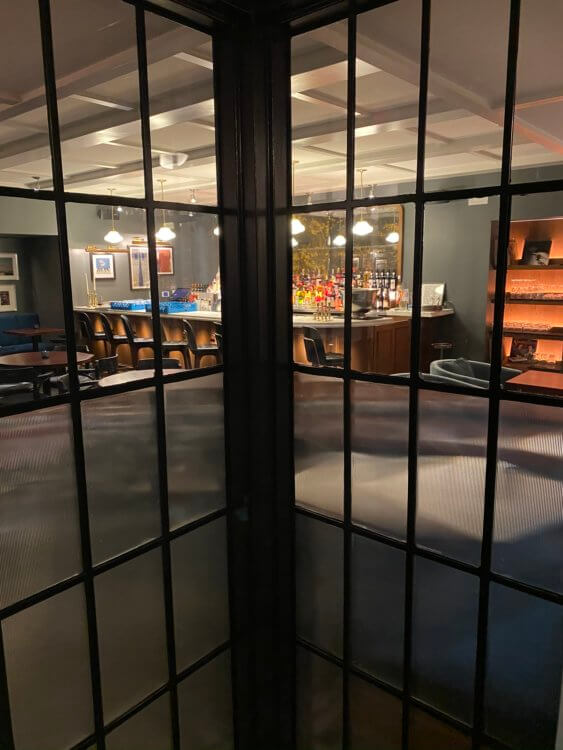
It took me a lot of time and effort before I could enjoy boozy events as a teetotaler. The first wedding I went to after I quit drinking was difficult, because I had no reference experiences for how to conduct myself without alcohol. I’ve also skipped plenty of parties that I knew wouldn’t be fun.
Once you stabilize and repair your biochemistry, the key to rewiring your brain is to accumulate new experiences with a new mindset.
I don’t recommend going to boozy events until you’re biochemically stable, psychologically ready to change your behavior, socially prepared to open up to at least one confidant, and spiritually centered enough to start building your new identity as a non-drinker.
You don’t need to be totally optimized in any of these areas…You just need to be stable and prepared.
Once you reach that point, you can begin to frame social events as opportunities in disguise. This reunion wasn’t my first rodeo; I’d had a ton of practice developing my own natural, alcohol-free charisma and mindset.
With practice comes an air of lighthearted and amused mastery. No triggers remain; no one can threaten your new identity. Your feel-good chemicals have been restored to their natural levels, and you know how to release more of them without even contemplating toxic alcohol. (Since you’ve proactively reframed alcohol, the thought of drinking, should it arise, immediately brings to mind your last horrific hangover or withdrawal episode.) You naturally focus on people and stop noticing their drinks. Whenever the topic of your teetotaling comes up, you nonchalantly welcome it as a point of pride, and effortlessly move on to the next topic of conversation. Being a nondrinker becomes easy.
All transformations begin with small improvements. Five years ago, I was stuck in my apartment on a Friday night wondering if quitting drinking would turn out to be worthwhile. The trials and tribulations of my first few months alcohol-free obscured the significance of those little things I’d already started doing – supplementation, diet improvements, reading books, sleeping blissfully – strategies which, with consistency, can propel anyone’s personal growth into uncharted territory.

Author
-
A decade+ addiction-free, Chris Scott, the visionary founder of Fit Recovery, passionately guides Fit Recovery 2.0 Members toward a vibrant, healthier lifestyle. Through the integration of groundbreaking nutritional strategies, transformative reframing techniques, neurolinguistic programming, and dynamic pro-recovery habit systems, he inspires individuals to boldly take charge of their lives and break free from alcohol. Chris is celebrated as a Professional Member of the Alliance For Addiction Solutions. Moreover, he is the proud author of the bestselling book "Drinking Sucks!" which stands as a vital beacon of hope for those yearning to quit drinking. Additionally, he created the celebrated online program Fit Recovery 2.0, designed to provide unwavering support for individuals embarking on their recovery journey.
View all posts Fit Recovery Founder & Director


